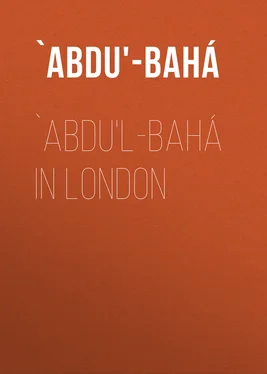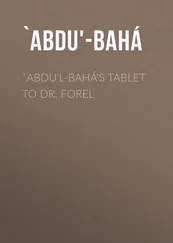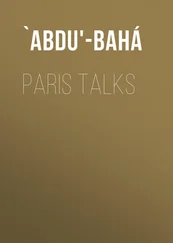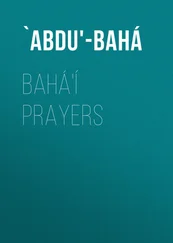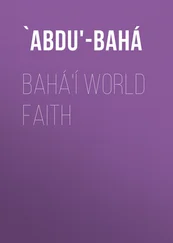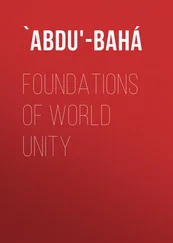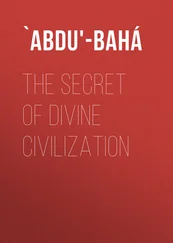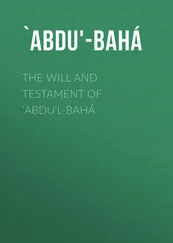`Abdu'-Bahá - `Abdu'l-Bahá in London
Здесь есть возможность читать онлайн «`Abdu'-Bahá - `Abdu'l-Bahá in London» — ознакомительный отрывок электронной книги совершенно бесплатно, а после прочтения отрывка купить полную версию. В некоторых случаях можно слушать аудио, скачать через торрент в формате fb2 и присутствует краткое содержание. Издательство: Иностранный паблик, Жанр: foreign_prose, foreign_religion, Философия, foreign_psychology, на английском языке. Описание произведения, (предисловие) а так же отзывы посетителей доступны на портале библиотеки ЛибКат.
- Название:`Abdu'l-Bahá in London
- Автор:
- Издательство:Иностранный паблик
- Жанр:
- Год:неизвестен
- ISBN:нет данных
- Рейтинг книги:4 / 5. Голосов: 1
-
Избранное:Добавить в избранное
- Отзывы:
-
Ваша оценка:
- 80
- 1
- 2
- 3
- 4
- 5
`Abdu'l-Bahá in London: краткое содержание, описание и аннотация
Предлагаем к чтению аннотацию, описание, краткое содержание или предисловие (зависит от того, что написал сам автор книги «`Abdu'l-Bahá in London»). Если вы не нашли необходимую информацию о книге — напишите в комментариях, мы постараемся отыскать её.
`Abdu'l-Bahá in London — читать онлайн ознакомительный отрывок
Ниже представлен текст книги, разбитый по страницам. Система сохранения места последней прочитанной страницы, позволяет с удобством читать онлайн бесплатно книгу «`Abdu'l-Bahá in London», без необходимости каждый раз заново искать на чём Вы остановились. Поставьте закладку, и сможете в любой момент перейти на страницу, на которой закончили чтение.
Интервал:
Закладка:
`Abdu'l-Bahá
`Abdu'l-Bahá in London
The City Temple: Introduction
On September 10th, the first Sunday after ‘Abdu’l-Bahá’s arrival in England, he spoke from the City Temple pulpit to the evening congregation at the special desire of the Pastor, the Reverend R. J. Campbell.
Though ‘Abdu’l-Bahá’s coming had not been advertised the Church was filled to its utmost capacity. Few that were there will ever forget the sight of that venerable figure clad in his Eastern garb, ascending the pulpit stairs to address a public gathering for the first time in his life. That this should be at a Christian place of worship in the West has its own deep significance. Mr. Campbell introduced the visitor with a few simple words in the course of which he said: “We, as the followers of the Lord Jesus Christ, who is to us and will always be the Light of the World, view with sympathy and respect every movement of the Spirit of God in the experience of mankind, and therefore we give greeting to ‘Abdu’l-Bahá in the name of all who share the spirit of our Master, and are trying to live their lives in that Spirit. The Bahá’í Movement is very closely akin to, I think I might say is identical with, the spiritual purpose of Christianity.”
Before ‘Abdu’l-Bahá left the Church, he wrote in the old Bible used by generations of preachers, the following words in his own native Persian, the translation being added as follows:
Inscription in the Old Bible Written by ‘Abdu’l-Bahá in Persian
This book is the Holy Book of God, of celestial Inspiration. It is the Bible of Salvation, the Noble Gospel. It is the mystery of the Kingdom and its light. It is the Divine Bounty, the sign of the guidance of God.
‘Abdu’l-Bahá Abbás.Address given by ‘Abdu’l-Bahá at the City Temple
O noble friends; seekers after God! Praise be to God! Today the light of Truth is shining upon the world in its abundance; the breezes of the heavenly garden are blowing throughout all regions; the call of the Kingdom is heard in all lands, and the breath of the Holy Spirit is felt in all hearts that are faithful. The Spirit of God is giving eternal life. In this wonderful age the East is enlightened, the West is fragrant, and everywhere the soul inhales the holy perfume. The sea of the unity of mankind is lifting up its waves with joy, for there is real communication between the hearts and minds of men. The banner of the Holy Spirit is uplifted, and men see it, and are assured with the knowledge that this is a new day.
This is a new cycle of human power. All the horizons of the world are luminous, and the world will become indeed as a garden and a paradise. It is the hour of unity of the sons of men and of the drawing together of all races and all classes. You are loosed from ancient superstitions which have kept men ignorant, destroying the foundation of true humanity.
The gift of God to this enlightened age is the knowledge of the oneness of mankind and of the fundamental oneness of religion. War shall cease between nations, and by the will of God the Most Great Peace shall come; the world will be seen as a new world, and all men will live as brothers.
In the days of old an instinct for warfare was developed in the struggle with wild animals; this is no longer necessary; nay, rather, co-operation and mutual understanding are seen to produce the greatest welfare of mankind. Enmity is now the result of prejudice only.
In the Hidden Words Bahá’u’lláh says, “Justice is to be loved above all.” Praise be to God, in this country the standard of justice has been raised; a great effort is being made to give all souls an equal and a true place. This is the desire of all noble natures; this is today the teaching for the East and for the West; therefore the East and the West will understand each other and reverence each other, and embrace like long-parted lovers who have found each other.
There is one God; mankind is one; the foundations of religion are one. Let us worship Him, and give praise for all His great Prophets and Messengers who have manifested His brightness and glory.
The blessing of the Eternal One be with you in all its richness, that each soul according to his measure may take freely of Him. Amen.
This Address is printed by kind permission, from The Christian Commonwealth of September 13th, 1911. Spoken by ‘Abdu’l-Bahá in Persian from the city Temple pulpit, the above translation was then read to the congregation by Mr. W. Tudor-Pole.
St. John’s Westminster: Introduction
On September 17th, ‘Abdu’l-Bahá at the request of the venerable Archdeacon of Westminster addressed the congregation of Saint John the Divine after evening service. With a few warm words characteristic of his whole attitude Archdeacon Wilberforce introduced the revered Messenger from the East, who had crossed seas and countries on his Mission of Peace and Unity for which he had suffered forty years of captivity and persecution. The Archdeacon had the Bishop’s chair placed for his Guest on the Chancel steps, and standing beside him read the translation of ‘Abdu’l-Bahá’s address himself. The Congregation was profoundly moved, and following the Archdeacon’s example knelt to receive the blessing of the Servant of God—who stood with extended arms—his wonderful voice rising and falling in the silence with the power of his invocation. As the Archdeacon said: “Truly the East and the West have met in this sacred place tonight.” The hymn “O God our help in ages past” was sung by the entire assembly standing, as ‘Abdu’l-Bahá and the Archdeacon passed down the aisle to the vestry hand in hand.
Outside the Church, Salvationists were holding their meeting and ‘Abdu’l-Bahá was deeply impressed and touched at the sight of the men, women and children gathered together in the night, at the street corner, praying and singing.
Discourse of ‘Abdu’l-Bahá at St. John’s, Westminster
O Noble Friends! O Seekers for the Kingdom of God! Man all over the world is seeking for God. All that exists is God; but the Reality of Divinity is holy above all understanding.
The pictures of Divinity that come to our mind are the product of our fancy; they exist in the realm of our imagination. They are not adequate to the Truth; truth in its essence cannot be put into words.
Divinity cannot by comprehended because it is comprehending.
Man, who has also a real existence, is comprehended by God; therefore, the Divinity which man can understand is partial; it is not complete. Divinity is actual Truth and real existence, and not any representation of it. Divinity itself contains All, and is not contained.
Although the mineral, vegetable, animal and man all have actual being, yet the mineral has no knowledge of the vegetable. It cannot apprehend it. It cannot imagine nor understand it.
It is the same with the vegetable. Any progress it may make, however highly it may become developed, it will never apprehend the animal, nor understand it. It is, so to speak, without news of it. It has no ears, no sight, no understanding.
It is the same with the animal. However much it may progress in its own kingdom, however refined its feelings may become, it will have no real notion of the world of man or of his special intellectual faculties.
The animal cannot understand the roundness of the earth, nor its motion in space, nor the central position of the sun, nor can it imagine such a thing as the all-pervading ether.
Although the mineral, vegetable, animal and man himself are actual beings, the difference between their kingdoms prevents members of the lower degree from comprehending the essence and nature of those of the superior degree. This being so, how can the temporal and phenomenal comprehend the Lord of Hosts?
Читать дальшеИнтервал:
Закладка:
Похожие книги на «`Abdu'l-Bahá in London»
Представляем Вашему вниманию похожие книги на «`Abdu'l-Bahá in London» списком для выбора. Мы отобрали схожую по названию и смыслу литературу в надежде предоставить читателям больше вариантов отыскать новые, интересные, ещё непрочитанные произведения.
Обсуждение, отзывы о книге «`Abdu'l-Bahá in London» и просто собственные мнения читателей. Оставьте ваши комментарии, напишите, что Вы думаете о произведении, его смысле или главных героях. Укажите что конкретно понравилось, а что нет, и почему Вы так считаете.
